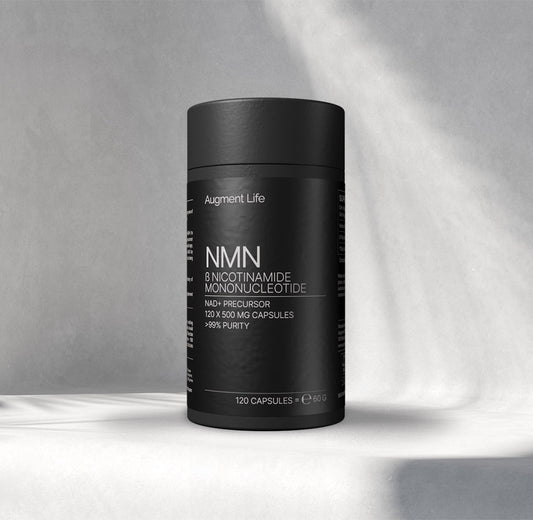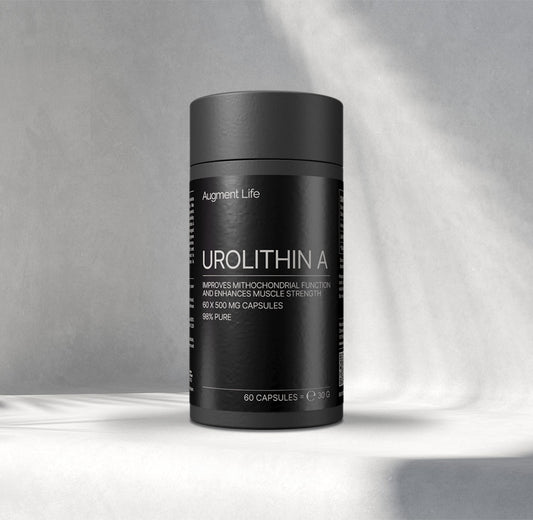GABA (gamma-aminobutyric acid), a well-known brain neurotransmitter, is essential for the control of neuronal excitability and maintenance of both relaxation and stimulation.
Many individuals turn to GABA supplements to help reduce anxiety, improve sleep, and enhance overall mood. However, determining the optimal dosage of GABA is essential to maximize its benefits and ensure safety.
What is GABA?
The central nervous system’s main inhibitory neurotransmitter is Gamma-Aminobutyric Acid (GABA). This has profound effects on neuronal excitability across the entire nervous system. It was shown that GABA modulates neural activity leading to a calming influence, which could help in reducing anxiety symptoms, promoting good sleep and encouraging feelings of wellness.1
Such beneficial outcomes can be boosted by using GABA supplements, particularly for people who have low levels of GABA.
You can read more about GABA in our article “GABA - Health Benefits, Dosage, and Side Effects”
Understanding GABA Supplementation
The reason behind taking GABA supplements is that they naturally calm the brain thus reducing stress.2 One study showed reduced GABA levels in the brains of depressed individuals.3
Furthermore, increased stress causes poor sleep, weak immune system, and higher chance of depression. Also, people who usually have low GABA levels suffer from certain diseases like:
- seizure disorders,
- Parkinson’s disease,
- ADHD,
- anxiety,
- panic disorder,
- mood disorders such as depression .
Others use GABA supplements to control their symptoms related to these conditions.4 A great deal of evidence supports the plausible theory of using GABA supplementation for a variety of conditions especially in the management of anxiety.5
This was evidenced by a study published in the Journal of Clinical Neurology that looked at the potential uses of GABA supplementation for treating insomnia. 40 participants in the month-long trial consumed 300 mg of GABA before going to bed. It was concluded that the participants' sleep quality had improved.6
Recommended Dosage of GABA supplements
There are no set dosage requirements for GABA because it is a dietary supplement rather than a regulated prescription. It is recommended that you take no more than 750 mg at a once, and daily dosages typically vary from 50 to 300 mg.
GABA supplements are safe to take for up to 12 weeks as long as they are taken as prescribed.7
GABA - Side Effects
GABA is generally considered safe for most people when taken in appropriate dosages.
However, in some cases, mild symptoms like tingling skin, burning sensation in the throat, and shortness of breath were observed, but usually ceases down just shortly after.7
Always keep in mind that each person is unique, therefore what suits one person may not suit another. Make sure to consult with your healthcare practitioner first before starting any kind of supplements.
Final Words
In addition to relaxation techniques such as deep breathing or meditation, considering GABA supplementation could be a beneficial choice if you are looking for ways to alleviate stress or improve your sleep quality.
Working with a healthcare professional, you can develop a personalized plan that optimizes the benefits of GABA and boosts your overall wellness.
References
- Boonstra, E., De Kleijn, R., Colzato, L. S., Alkemade, A., Forstmann, B. U., & Nieuwenhuis, S. (2015). Neurotransmitters as food supplements: the effects of GABA on brain and behavior. Frontiers in Psychology, 6. https://doi.org/10.3389/fpsyg.2015.01520.
- Abdou, A. M., Higashiguchi, S., Horie, K., Kim, M., Hatta, H., & Yokogoshi, H. (2006). Relaxation and immunity enhancement effects of gamma-aminobutyric acid (GABA) administration in humans. BioFactors (Oxford, England), 26(3), 201–208. https://doi.org/10.1002/biof.5520260305.
- Lener, M. S., Niciu, M. J., Ballard, E. D., Park, M., Park, L. T., Nugent, A. C., & Zarate, C. A. (2017). Glutamate and Gamma-Aminobutyric acid systems in the pathophysiology of major depression and antidepressant response to ketamine. Biological Psychiatry, 81(10), 886–897. https://doi.org/10.1016/j.biopsych.2016.05.005.
- Schür, R. R., Draisma, L. W., Wijnen, J. P., Boks, M. P., Koevoets, M. G., Joëls, M., Klomp, D. W., Kahn, R. S., & Vinkers, C. H. (2016). Brain GABA levels across psychiatric disorders: A systematic literature review and meta-analysis of (1) H-MRS studies. Human brain mapping, 37(9), 3337–3352. https://doi.org/10.1002/hbm.23244.
- Park, K. B., & Oh, S. H. (2007). Production of yogurt with enhanced levels of gamma-aminobutyric acid and valuable nutrients using lactic acid bacteria and germinated soybean extract. Bioresource technology, 98(8), 1675–1679. https://doi.org/10.1016/j.biortech.2006.06.006.
- Byun, J. I., Shin, Y. Y., Chung, S. E., & Shin, W. C. (2018). Safety and Efficacy of Gamma-Aminobutyric Acid from Fermented Rice Germ in Patients with Insomnia Symptoms: A Randomized, Double-Blind Trial. Journal of clinical neurology (Seoul, Korea), 14(3), 291–295. https://doi.org/10.3988/jcn.2018.14.3.291.
- Oketch-Rabah, H. A., Madden, E. F., Roe, A. L., & Betz, J. M. (2021). United States Pharmacopeia (USP) Safety Review of Gamma-Aminobutyric Acid (GABA). Nutrients, 13(8), 2742. https://doi.org/10.3390/nu13082742.
- Cavanna, A. E., Trimble, M. R., Cinti, F., & Monaco, F. (2010). The role of GABA in the pathophysiology and treatment of Tourette syndrome and other neuropsychiatric disorders. Journal of Neuropsychiatry and Clinical Neurosciences, 22(3), 262-273. https://doi.org/10.1176/jnp.2010.22.3.262.












